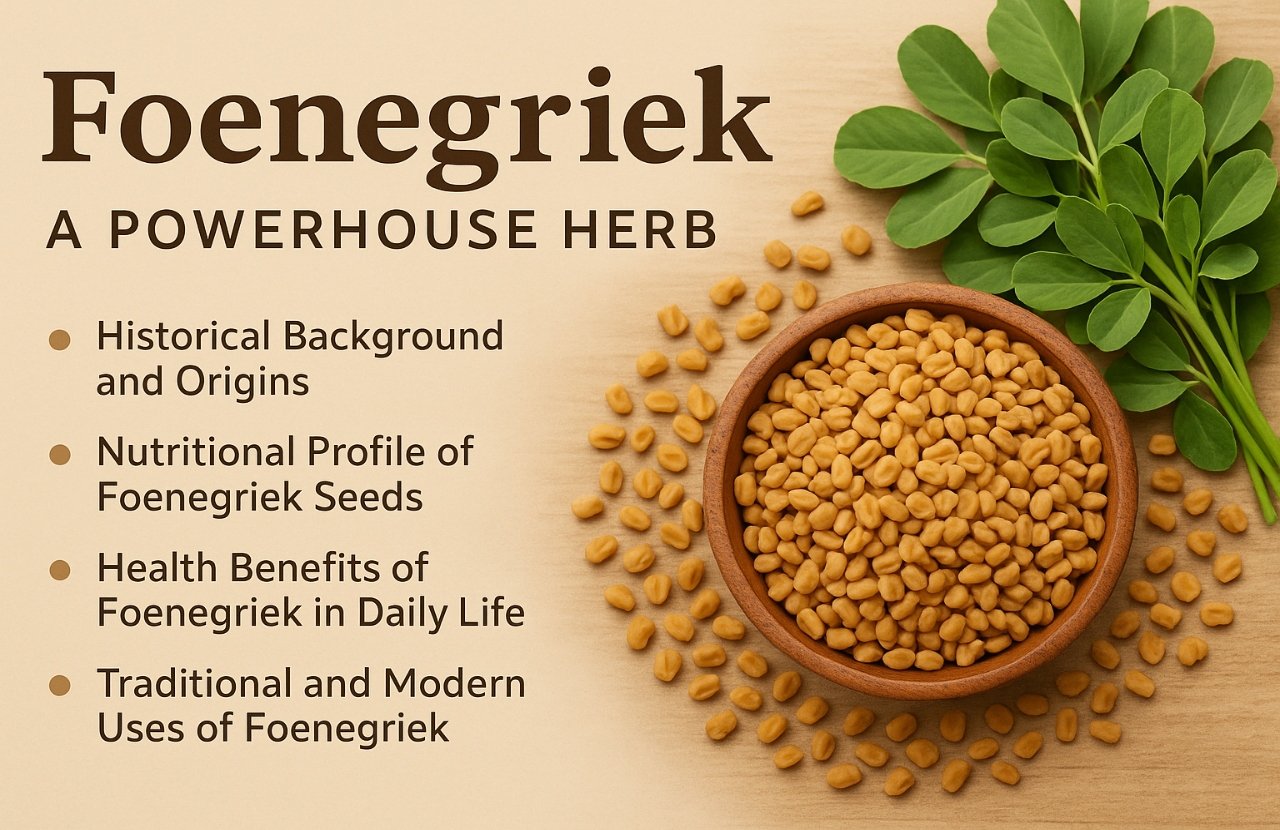Health
Foenegriek: Health Benefits, Uses, and Nutritional Value

Foenegriek, known as fenugreek in many parts of the world, is a powerhouse herb that has been cherished for centuries. From its unique flavor to its impressive health benefits, this small seed packs a big punch. Whether you’ve stumbled upon it at your local grocery store or have heard about its medicinal wonders from friends and family, foenegriek deserves a spot on your radar.
Imagine adding an ingredient to your meals that not only enhances taste but also boosts nutrition—sounds appealing, right? As we dive deeper into the fascinating world of foenegriek, you’ll discover how this ancient herb can elevate both your culinary creations and overall well-being. Let’s embark on this journey together!
Historical Background and Origins of Foenegriek
Foenegriek, commonly known as fenugreek, has a rich history that stretches back thousands of years. This herb is believed to have originated in the Mediterranean region and parts of Asia. Ancient Egyptians prized it for its medicinal properties, often using it in embalming rituals.
In India, where foenegriek is called “methi,” it has been cultivated for over 3,000 years. It plays a significant role in traditional Indian cuisine and Ayurvedic medicine.
The Greeks also recognized its value; Hippocrates mentioned foenegriek in his writings for various ailments.
Today, this versatile plant continues to be cherished across cultures worldwide for both culinary and health benefits, highlighting its enduring legacy through the ages.
Nutritional Profile of Foenegriek Seeds
Foenegriek seeds, also known as fenugreek, boast an impressive nutritional profile. They are rich in protein, making them an excellent choice for vegetarians and vegans.
These tiny seeds pack a punch with their fiber content. This helps promote healthy digestion and can assist in maintaining stable blood sugar levels.
Foenegriek is also loaded with essential vitamins and minerals. Iron, magnesium, and manganese are present in significant amounts, contributing to overall health.
Moreover, they contain antioxidants that combat oxidative stress. This property supports cellular health and may reduce the risk of chronic diseases.
The presence of phytonutrients further enhances Foenegriek’s appeal. These compounds have anti-inflammatory effects that can benefit various bodily functions.
Incorporating this superfood into your diet can provide a natural boost to your nutritional intake while offering numerous health advantages.
Health Benefits of Foenegriek in Daily Life
Foenegriek, often known for its distinctive flavor, offers a wealth of health benefits that can enhance daily life. Packed with vitamins and minerals, these seeds are particularly rich in iron and magnesium.
Many people turn to foenegriek for its ability to aid digestion. It helps soothe the stomach and may alleviate issues like bloating or gas.
Moreover, foenegriek is renowned for hormone regulation. This makes it an appealing option for women experiencing menstrual discomfort or menopause symptoms.
Its anti-inflammatory properties contribute to overall wellness as well. Regular consumption could help reduce inflammation within the body.
Additionally, some studies suggest that foenegriek may support blood sugar control, making it beneficial for those managing diabetes. The potential heart-health benefits are also noteworthy; it might assist in lowering cholesterol levels.
Incorporating foenegriek into your routine opens doors to numerous advantages that align with a holistic approach to health.
Traditional and Modern Uses of Foenegriek
Foenegriek, commonly known as fenugreek, has a rich tapestry of uses that span cultures and centuries. Traditionally, its leaves and seeds have been staples in Indian cuisine. They’re often used to add depth to curries and lentil dishes.
In ancient Egypt, foenegriek was valued for both culinary and medicinal purposes. It was even found in the tombs of pharaohs!
Modern applications have expanded greatly. Today, many people use foenegriek supplements to enhance health. It’s popular among those seeking natural remedies for various ailments.
Moreover, the seeds are gaining traction in the beauty industry due to their nourishing properties for hair growth and skin health. From traditional spice blends to contemporary wellness products, foenegriek continues to evolve while retaining its revered status worldwide.
Foenegriek in Herbal Medicine and Remedies
Foenegriek, often celebrated for its therapeutic properties, has deep roots in herbal medicine. Its seeds have been used for centuries as a natural remedy across various cultures.
Traditionally, Foenegriek is known to aid digestion and soothe gastrointestinal discomfort. Many recommend it for its anti-inflammatory effects, which can provide relief from conditions like arthritis or muscle pain.
In Ayurveda, Foenegriek is valued for balancing doshas and promoting overall health. It’s commonly used in concoctions aimed at enhancing metabolic function and regulating blood sugar levels.
Modern herbalists also embrace Foenegriek’s potential benefits. The seeds are believed to support lactation in nursing mothers and may help boost testosterone levels in men.
With such versatility, incorporating this herb into daily remedies can enhance wellness naturally without relying solely on pharmaceuticals.
Culinary Uses of Foenegriek Around the World
Foenegriek, known as fenugreek in English, is a versatile ingredient celebrated across various cuisines. In Indian cooking, it adds depth to curries and dals. Its unique flavor enhances vegetable dishes and offers a nutty essence.
In the Middle East, crushed foenegriek seeds are often sprinkled on bread or used in spice blends like za’atar. They bring warmth and complexity to every bite.
North African cultures use these seeds in tagines and stews for added richness. The aromatic notes balance well with spices such as cumin and coriander.
Additionally, foenegriek leaves make an appearance in salads and wraps worldwide. They contribute freshness while delivering health benefits.
The seeds can also be sprouted for salads or sandwiches, introducing a crunchy texture that many enjoy. Each culinary tradition highlights its adaptability and distinctive taste profile beautifully.
Possible Side Effects and Precautions of Foenegriek
While foenegriek offers numerous health benefits, it’s essential to be aware of potential side effects. Some individuals may experience gastrointestinal discomfort, such as bloating or diarrhea. Starting with small amounts can help assess tolerance.
Allergic reactions are possible for those sensitive to plants in the Fabaceae family. Symptoms might include rash or respiratory issues. If you notice any adverse reactions, discontinue use and consult a healthcare professional immediately.
Pregnant women should exercise caution, as foenegriek has been linked to hormonal changes that could affect pregnancy. For breastfeeding mothers, it’s advisable to seek medical advice before incorporating this herb into their diet.
Additionally, if you’re on medication—especially blood thinners or diabetes medications—check with your doctor first. The interaction between foenegriek and certain drugs can lead to unwanted side effects or altered drug efficacy. Awareness ensures a safe experience while enjoying its benefits.
How to Incorporate Foenegriek into Your Diet
Incorporating foenegriek into your diet can be simple and delicious. Start with the seeds; they can be soaked overnight and added to salads for a crunchy texture.
You might also grind them into a powder. This spice works well in curries, stews, or even sprinkled on roasted vegetables to enhance flavor.
For those who enjoy smoothies, add a teaspoon of foenegriek powder for an extra nutritional boost. It pairs nicely with fruits like bananas and berries.
If you prefer something warm, try making foenegriek tea. Steep the seeds in hot water for about 10 minutes and sip it throughout the day.
Don’t forget about baked goods! Incorporate ground foenegriek into bread or pancake mixes for unique taste and health benefits.
Experimenting is key—find what works best for your palate while enjoying all that foenegriek has to offer!
Final Thoughts on the Importance of Foenegriek
Foenegriek, or fenugreek as it is known in many parts of the world, emerges as a powerhouse of health benefits and culinary versatility. Its rich history underscores its significance across cultures, making it not just an herb but a vital player in traditional medicine and modern nutrition.
The nutritional profile of foenegriek seeds reveals a treasure trove of vitamins and minerals that can enhance overall well-being. With its reputed ability to support digestion, promote lactation in nursing mothers, and even help manage blood sugar levels, foenegriek proves invaluable for daily health routines.
Incorporating this remarkable seed into your diet can be both simple and enjoyable. From adding it to curries for depth of flavor to brewing tea infused with its essence, the possibilities are nearly endless.
As you navigate through various herbal remedies or seek ways to boost your meals nutritionally, remember the potential that lies within foenegriek. This ancient herb continues to stand the test of time—inviting us all to explore its myriad uses while reaping its impressive benefits.

 Music6 months ago
Music6 months ago[Album] 安室奈美恵 – Finally (2017.11.08/MP3+Flac/RAR)

 Music6 months ago
Music6 months ago[Album] 小田和正 – 自己ベスト-2 (2007.11.28/MP3/RAR)
- Music6 months ago
[Album] back number – ユーモア (2023.01.17/MP3/RAR)
- Music6 months ago
[Single] tuki. – 晩餐歌 (2023.09.29/Flac/RAR)

 Music6 months ago
Music6 months ago[Album] 米津玄師 – Lost Corner (2024.08.21/MP3 + Flac/RAR)
- Music6 months ago
[Single] ヨルシカ – 晴る (2024.01.05/MP3 + Hi-Res FLAC/RAR)

 Music6 months ago
Music6 months ago[Album] Taylor Swift – The Best (MP3 + FLAC/RAR)

 Music6 months ago
Music6 months ago[Album] ぼっち・ざ・ろっく!: 結束バンド – 結束バンド (2022.12.25/MP3/RAR)












